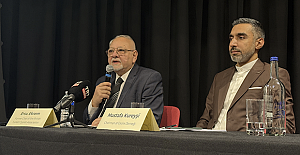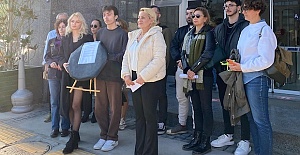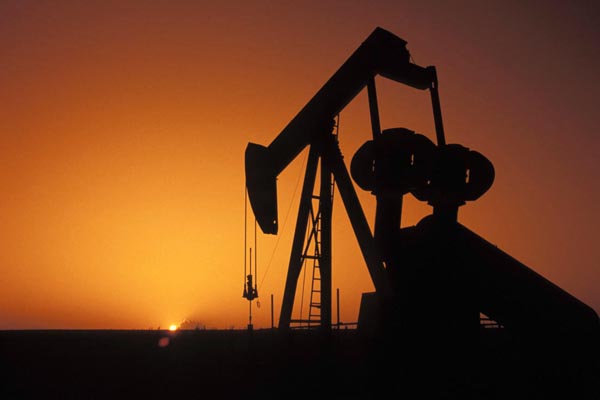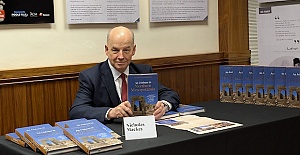Iranian Oil Minister Bijan Zanganeh named the seven in order: Total of France, Royal Dutch Shell, Italy's ENI, Norway's Statoil, Britain's BP and U.S. companies Exxon Mobil and ConocoPhillips.
Iran has the world's fourth-largest proved national reserves of oil - most of it cheap to produce - and is also home to the biggest proved reserves of natural gas, some 18 percent of the global total.
But with nationalisation in the Islamic revolution of 1979, the oil companies were thrown out. Iran's share of world oil production fell to below 40 percent by 1997 from 55 percent in the 1970s. Its gas output remained negligible.
Oil companies from around the world drifted back in the 1990s, and Zanganeh oversaw their return as minister under the reformist government of 1997-2005.
Total returned to onshore fields in 1997 and Shell in 1999, both while Zanganeh was minister and both in defiance of the U.S. sanctions of the time, even though President Bill Clinton had blocked a Conocoproject in 1995.
But Iran's production stagnated through the 2000s amid growing international tensions over its nuclear programme. The more effective sanctions instituted in 2012 have choked out foreign investment and sent output down to 2.65 million barrels a day in November from an average of 4.3 million in 2011.
Iran last month reached an interim deal with six western powers to limit its nuclear programme, under which sanctions on oil investment and trade with Iran may be lifted next year.
EUROPEAN TALKS FIRST
Speaking to reporters at an OPEC meeting, Zanganeh said he was already talking with some companies, although so far not those from the United States.
"We had no limitations for U.S. companies. Twenty years ago there were limitations against them from their own administration. For doing projects in Iran, we have no limitations," Zanganeh said.
He is due to meet senior executives from Western oil companies including Eni and Shell on Thursday, an Iranian oil official said.
Zanganeh made no mention of Russian, Chinese or Japanese companies or those of other nationalities. Asked whether he would like to see Asian, Indian, Chinese companies coming to Iran as well, he said: "Yes, but now we are discussing with European (firms)."
He said contract terms would be better than those in post-war Iraq, which limited oil companies to operating fees rather than the share of production deals they prefer.
"I cannot say more about the detail," Zanganeh said.
Mehdi Hosseini, an Iranian official in charge of revising national investment terms, told Reuters he hoped to be able to introduce the new contract model at a London conference in the second week of April.


 After Nesil Caliskan a by-election will be held in Jubilee ward in Enfield
After Nesil Caliskan a by-election will be held in Jubilee ward in Enfield Publishing the analysis, Labour’s Cllr Ergin Erbil said Everybody in Enfield deserves basic rights
Publishing the analysis, Labour’s Cllr Ergin Erbil said Everybody in Enfield deserves basic rights Gaza-Israel conflict Statement from Cllr Ergin Erbil, Leader of Enfield Council
Gaza-Israel conflict Statement from Cllr Ergin Erbil, Leader of Enfield Council Cllr Ergin Erbil was elected as the new Leader of Enfield Council
Cllr Ergin Erbil was elected as the new Leader of Enfield Council History of the Turkish Cypriot People symposium held in London
History of the Turkish Cypriot People symposium held in London Asia's most famous and powerful 100 women award given to WFPA President Naziya Bisenova
Asia's most famous and powerful 100 women award given to WFPA President Naziya Bisenova Death toll climbs to 5 as powerful Storm Bert batters Britain
Death toll climbs to 5 as powerful Storm Bert batters Britain Turkish students are unable to obtain visas from the Italian Consulates
Turkish students are unable to obtain visas from the Italian Consulates Footballers are celebrating after Enfield Council officially opened a pitch
Footballers are celebrating after Enfield Council officially opened a pitch  Pep Guardiola's Manchester City beaten by Juventus
Pep Guardiola's Manchester City beaten by Juventus Chelsea to meet Arsenal in Sunday's London derby
Chelsea to meet Arsenal in Sunday's London derby Fenerbahce vs Manchester United Predicted line-ups! Jose Mourinho faces former side
Fenerbahce vs Manchester United Predicted line-ups! Jose Mourinho faces former side Shape the future of housing services with The Enfield 500
Shape the future of housing services with The Enfield 500 DOUBLE-CAB PICKUPS TO BE CLASSED AS CARS UNDER NEW HMRC POLICY
DOUBLE-CAB PICKUPS TO BE CLASSED AS CARS UNDER NEW HMRC POLICY Guide to Selling Hoodies with Imprinted Book Quotes
Guide to Selling Hoodies with Imprinted Book Quotes Google Street View launches at London’s busiest stations, making journeys easier
Google Street View launches at London’s busiest stations, making journeys easier
















